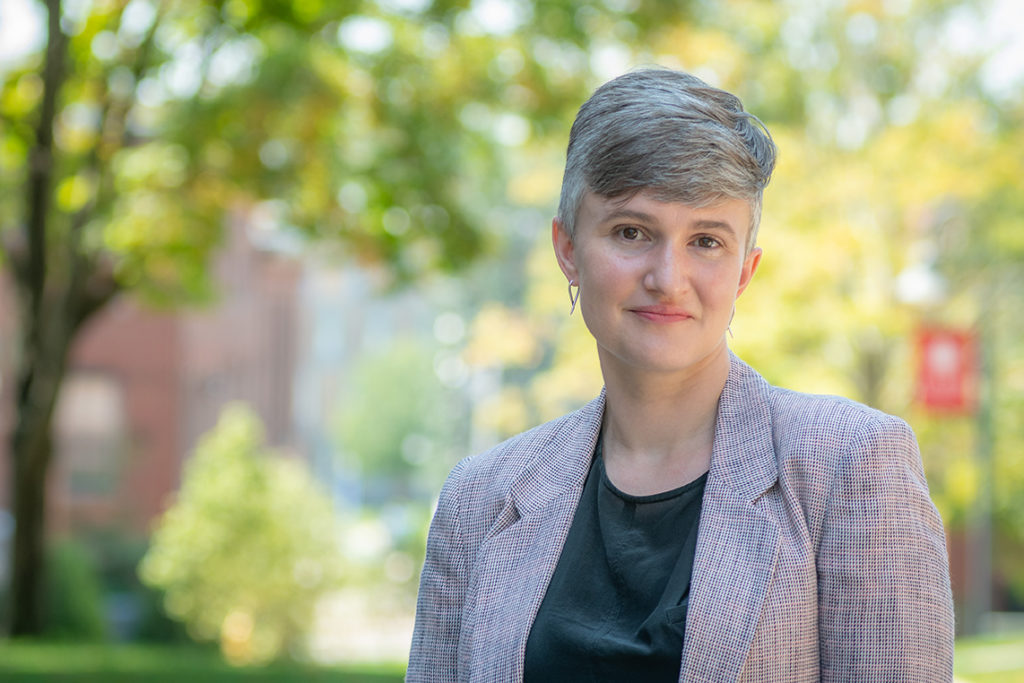Professor Elizabeth Blake’s research and teaching explores the meanings of modernism

Elizabeth Blake, new assistant professor of English at Clark University, is teaching a course this fall titled Modernist Literature. She begins the course description thus:
“Virginia Woolf famously wrote that, ‘on or about December 1910 human character changed.’ ”
Whether that claim can be supported is just one of the questions Blake’s students will dive into, along with examinations of “what it means to ‘be modern,’ what it means to ‘be modernist,’ and what the two have to do with each other.”
A scholar of 20th-century literature, Blake specializes in transnational modernisms, food studies, and gender and sexuality studies. Her research focuses on the ways queer pleasure is represented in modernist literature, and how those representations come to reshape existing literary forms. She also is interested in the relationship between modernism and popular forms of cultural production, including cookbooks, dinner theater, genre fiction, and women’s middlebrow fiction.
Lisa Kasmer, chair of the Department of English, notes that Blake’s areas of research provide complement those of other English faculty.
“We are thrilled to have Dr. Blake join our department,” says Kasmer. “Modernist literature bridges our innovative courses in earlier literary periods with our extensive noteworthy courses in contemporary literature. Dr. Blake’s expertise in queer theory also enhances our department’s cutting-edge approaches to literature, such as book history, ethnic studies, women’s and gender studies, postcolonial studies, and the medical humanities.”
Blake, who holds a doctorate in English from Cornell University, is working on two book projects. “In the Mouth: Modernism and the Queering of Eating” demonstrates that scenes of eating in modernist literature are sites of queerness, depicting and enacting a kind of pleasure that exceeds normative models. The tentatively titled “Against the Love Plot” traces the ways mid-century women’s fiction resists both normative models of love and normative plotlines that end in marriage.
“I’m excited to teach a student body that’s so engaged and thoughtful, and to be part of a collegial and supportive department,” Blake says. “I’m also pleased to be near so many great archives in the region, and to be part of a research university with such an excellent reputation.”


